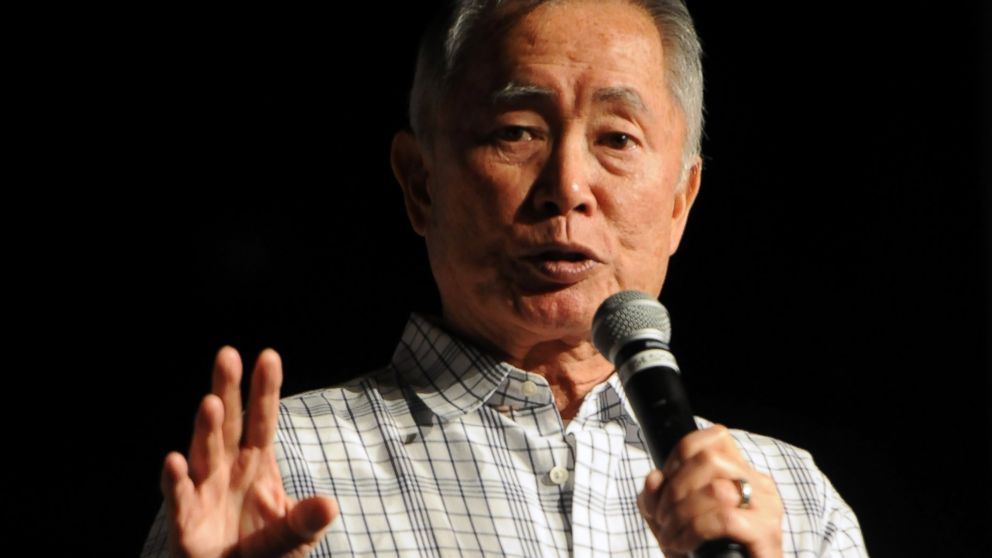George Takei Criticizes Virginia Mayor's Syrian Refugee Stance
The actor expressed his unhappiness on social media.

— -- "Star Trek" actor George Takei is taking to task the mayor of Roanoke, Va., after he suggested that President Franklin D. Roosevelt’s detention of Japanese-Americans during World War II was justification for blocking Syrian refugee resettlement in the wake of recent ISIS attacks.
Takei, a well-known Japanese-American actor who was interned during the war and is currently starring in the Broadway musical "Allegiance," wrote an extensive post on Facebook in which he tells Democratic Mayor David Bowers: "You demonstrably have failed to learn the most basic of American civics or history lessons."
"The internment (not a "sequester") was not of Japanese 'foreign nationals,' but of Japanese Americans, two-thirds of whom were U.S. citizens," Takei wrote. "I was one of them, and my family and I spent 4 years in prison camps because we happened to look like the people who bombed Pearl Harbor. It is my life’s mission to never let such a thing happen again in America."
Bowers put out a statement Wednesday requesting that all assistance to Syrian refugees be suspended until "these serious hostilities and atrocities end."
Takei went on to say that none of the 120,000 people who were interned were ever proven to be a threat to America, "just as there has been no act of terrorism from any of the 1,854 Syrian refugees the U.S. already has accepted."
He added, "We were judged based on who we looked like, and that is about as un-American as it gets."
He then invited the mayor to come see his show on Broadway.
Bowers did not immediately respond to ABC News' request for comment.
Another prominent Japanese-American, Rep. Mike Honda (D-Calif.), also condemned Bowers statement. In a lengthy Medium post titled, "The Lessons of Japanese American Internment Should Not Be Forgotten," Honda wrote: "The Japanese and Japanese Americans interned after the bombing of Pearl Harbor was an outrage, as was turning away Jews at our borders who were fleeing German persecution. We cannot allow this to happen again and reverse the progress we have made in the last several decades."




